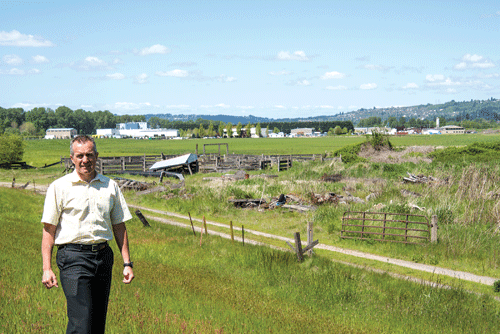“We’re continuing to meet with CRC and work through some different scenarios that make sense, don’t make sense or can get ruled out,” he added. “We’re just trying to work through those to reach some sort of plan that addresses how the CRC can mitigate our situation here and still meet the needs of some of the other river users.”
While optimistic about the progress of mediation, Rudi noted that there are some “real time-related issues that must be recognized.” For example, he said, clients have already started to comment about the bridge conflict, and he’s anxious to not let it go beyond that.
“A lot of these companies do long range capital expenditure planning,” he explained. “If they think there’s a risk that you may not be able to support their need in four or five years then you fall off of the planning cycle. It’s very important to stay on board with these guys early on in these large projects because trying to get on board late is very difficult.”
TMF works on contract with organizations like the U.S. Army Corps of Engineers and the oil and gas industry on the North Slope of Alaska. Currently, the company is fabricating six and a half miles of elevated rail track that will be used for rapid transit in the Bay Area. And next year, Rudi said, TMF will be working with the U.S. Navy.
“We’ve got a pretty good backlog in and through next year and we have quite a few projects that are out there pending in Alaska, Washington and California,” he said.
Located just east of the I-5 Bridge on a 15-acre parcel of land along the Columbia River, TMF employs approximately 250 people and has an estimated annual payroll of $16.2 million. Rudi said he expects that number to grow as the company takes advantage of new opportunities in the market.
“We’ve got a lot of people looking at us,” he said. “The rising fuel costs, transportation costs and administration costs for large projects overseas will start to make us more competitive now.
“We are in much better position to present a facility and a workforce that will make us competitive – possibly in the oil sands and some other areas that [require] big modules that are currently being brought in from overseas,” Rudi added.
With many of TMF’s opportunities hinging on successful mediation with CRC staff, Rudi stressed that both parties are doing a good job of staying engaged.
“We’re not at opposite polar ends,” he said. “We’re all working to try and find a solution.”








